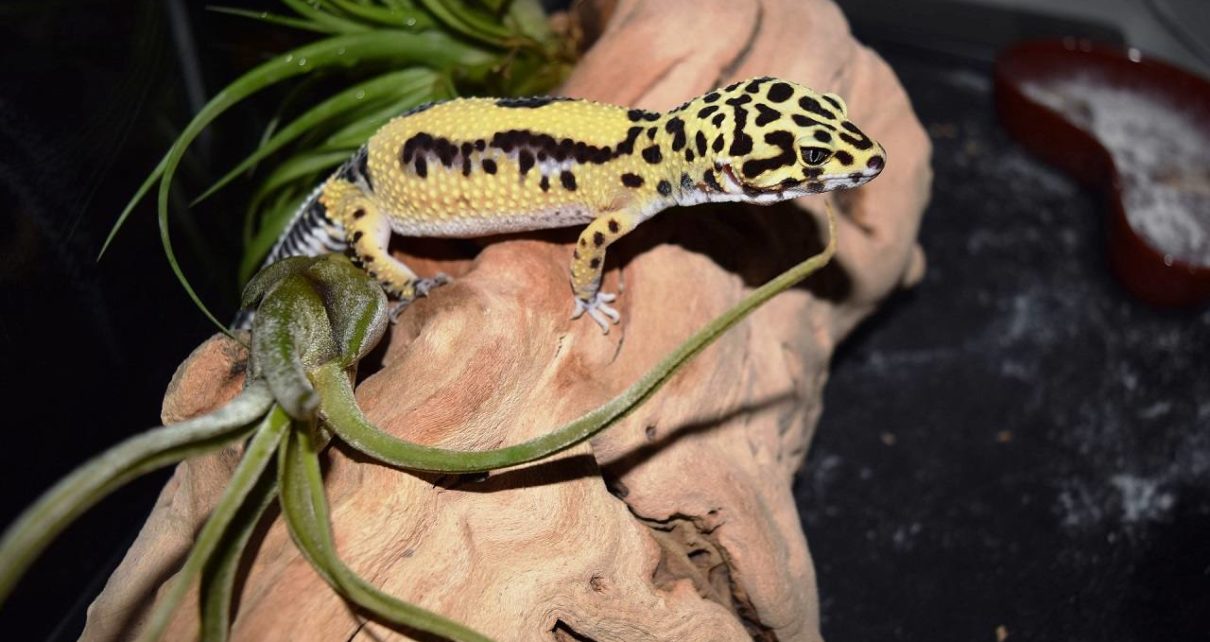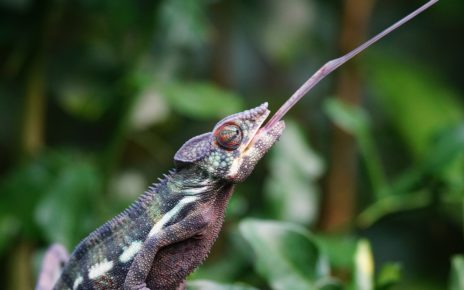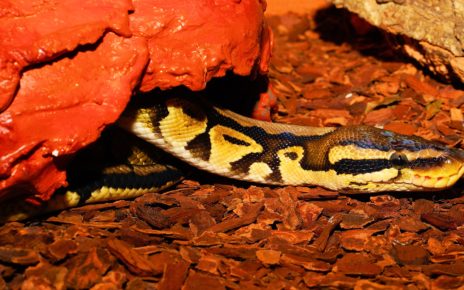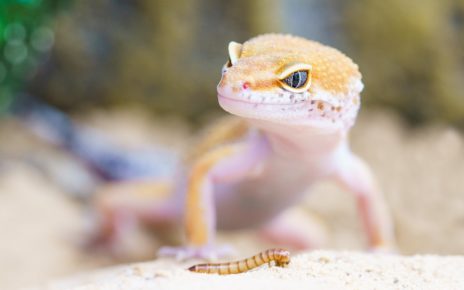Can Leopard Geckos Eat Hornworms? Yes, leopard geckos can eat hornworms. Hornworms make a great leopard gecko treat, and they are soft and full of moisture which makes them very easy to eat.
It’s a good idea to only feed full-size hornworms to adult leopard geckos since they can be a little too large for a juvenile gecko to swallow safely.
Hornworms are one of the best leopard gecko food alternatives that will add some variety to your leopard geckos diet. If you can’t find live hornworms locally you can order them online from the links below.
Buy Hornworms Online
| Image | Name | Rating | Shop |
|---|---|---|---|
 | 20-30ct Live Hornworms | ||
 | 12 Count Hornworm Cup | ||
 | Hornworm Chow | ||
 | Suction Cup Feeder for Gecko |
Hornworm Nutritional Value
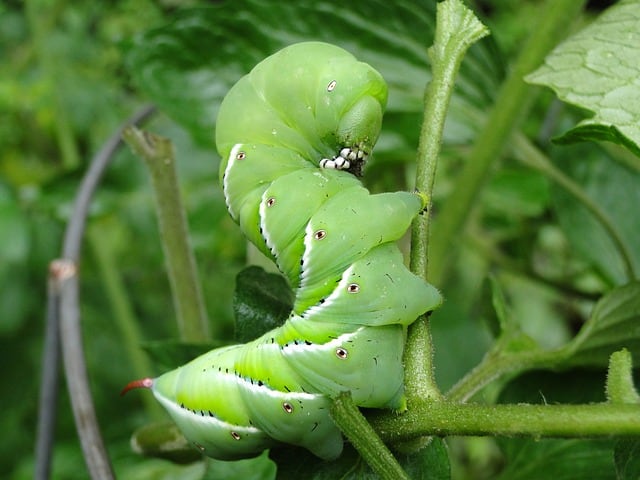
Hornworms are a very nutritious feeder insect for leopard geckos. They contain 9% protein and 3% fat. They also have an 85% moisture content, which makes them a great food for geckos that refuse to drink.
Hornworms are also an excellent source of calcium at 46 mg/100 grams. That high calcium content makes hornworms a great feeder insect to help prevent metabolic bone disease.
Protein: 9%
Fat: 3.0%
Calcium: 46mg/100g
Moisture: 85%
Can Hornworms Hurt Leopard Geckos
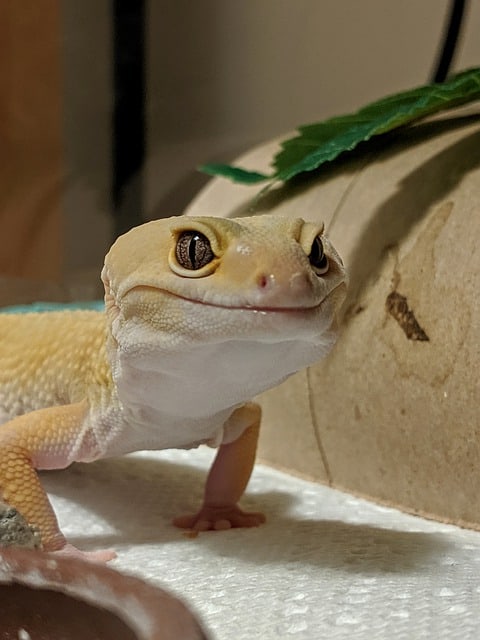
Hornworms can grow to be very thick, and they can be hard for smaller geckos to eat. That’s why it’s a good idea to only feed fully mature hornworms to adult leopard geckos.
Small immature hornworms can be safe for a smaller juvenile gecko to eat. Just be sure to observe your gecko and watch if they have any trouble chewing or swallowing a whole hornworm.
Hornworms grow very quickly which means you’ll need to make sure you don’t wait too long to feed them to your gecko. A small hornworm can reach full size in a matter of days, so if you want to feed them to a juvenile gecko you’ll need to do it quickly.
You can slow down the growth of immature hornworms if you keep them at a temperature of 55 to 60 degrees Fahrenheit (12.5 to 15.5 Celsius). However, you don’t want to put them in a refrigerator since this can kill the hornworms, and it can dry them out and make them hard to eat.
You also never want to feed your leopard gecko wild-caught hornworms since they can carry parasites and bacteria which can cause disease.
How Many Hornworms Can A Leopard Gecko Eat
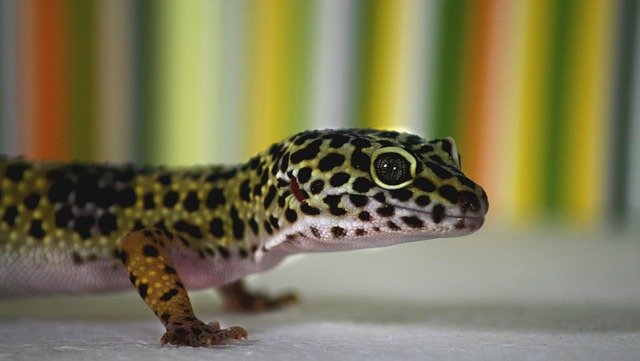
The amount of hornworms a leopard gecko can eat mainly depends on the size of the hornworms and the age of your gecko. You can feed one large hornworm to an adult gecko as long as it’s not too large for them to eat.
Adult leopard geckos can easily eat 3 to 4 small hornworms or 2 to 3 medium-sized hornworms.
Juvenile leopard geckos, on the other hand, should only be given small or at most medium-sized hornworms since large hornworms will be too big for them to eat.
You can feed a juvenile leopard gecko 1 to 3 small hornworms, or possibly 1 medium-sized hornworm.
Adult Leopard Gecko Feeding – Hornworms
1 Large Hornworm
2-3 Medium Hornworms
3-4 Small Hornworms
Juvenile Leopard Gecko Feeding – Hornworms
1 Medium Hornworm (possibly)
1-3 Small Hornworms
How Often Can I Feed My Leopard Gecko Hornworms
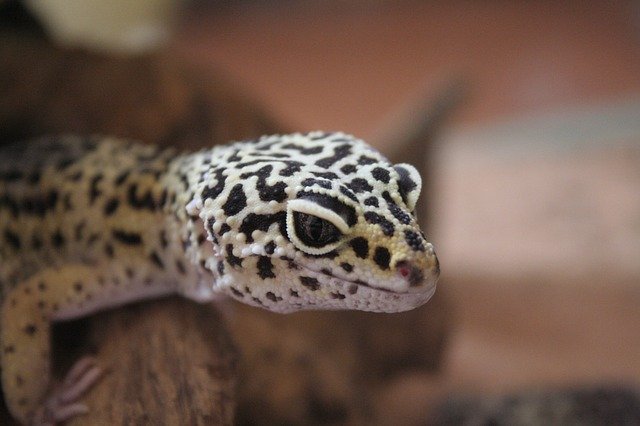
Young Leopard Geckos ( < 1 Year) : Maximum: 3 Days a Week – 1 to 3 Small Hornworms
Mature Geckos ( > 1-Year-Old) : Maximum: Once a Week – 1 Large Hornworm, 1 to 2 medium-sized hornworms, or 3 to 4 small hornworms
Each gecko will have different preferences, which means you can never be sure what your leopard gecko will eat. Some geckos absolutely love hornworms and can’t get enough of them. While other geckos won’t even eat them as an occasional treat.
Some geckos can become spoiled if you feed them hornworms, which can make them stop eating other feeder insects completely. If this happens you might have to stop feeding your leopard gecko until they are willing to eat a more varied nutritionally complete diet.
That’s why it’s a good idea to only feed your leopard gecko hornworms sparingly. For most geckos, it’s best to only feed them hornworms once a month.
If your gecko doesn’t like hornworms you don’t have to worry since there are plenty of other insects you can try like silkworms, waxworms, or isopods. You can learn more about these leopard gecko food alternatives further down in this article.
Hornworms
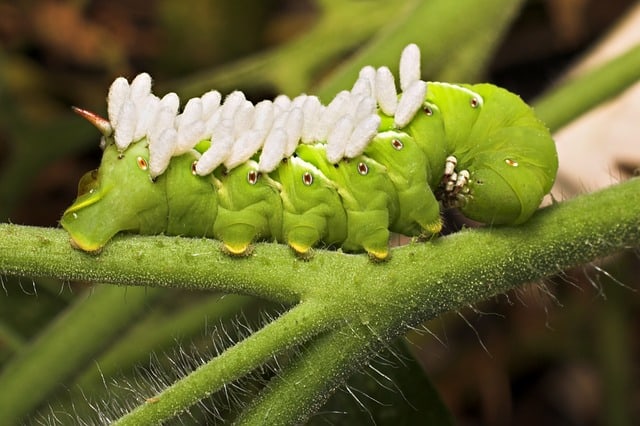
Hornworms are a great feeder insect for adult geckos since they grow quickly, and they are very affordable to raise. These “worms” are commonly found in vegetable gardens where they feed on plants like tomatoes, potatoes, and even tobacco.
Hornworms are actually a caterpillar that will eventually mature into a five-spotted hawkmoth. They are native to North America and Australia, but they have also become invasive pests that have spread around the world.
Live Leopard Gecko Food Hornworms
20-30ct Live Hornworms
Live Hornworms 20-30ct (Buy Online) come with a worry-free live arrival guarantee. All the hornworms are 0.25 to 0.5 inches, and they are all a uniform size. Also, they are packed and shipped with a heat pack in the winter, or a cool pack in the summer for no additional cost.
12 Live Hornworms with Hornworm Food
Live Hornworms with Hornworm Food (Buy Online) comes with at least twelve 1-inch hornworms in each cup. Each cup is filled with enough hornworm food for the hornworms to grow to full size, and fast free shipping is included as part of the price.
Hornworm Chow
Hornworm Chow (Buy Online) is a high-quality vitamin-enriched hornworm food. You get one pound of hornworm chow in each bag, which is enough for 2.5 pounds of cooked food.
Gecko Feeding Bowl
Suction Cup Feeder for Gecko
The Suction Cup Feeder for Geckos (Buy Online) is great for geckos that like to forage for food while they climb. This bowl also keeps insects from crawling out since it has an escape-proof design, so you won’t have to worry about catching insects crawling all over your gecko’s habitat.
Live Leopard Gecko Food Alternatives
Mealworms
Mealworms (Buy Online) are a very nutritious feeder insect for leopard geckos, and they are an especially rich source of protein and fatty acids. Mealworms have a 19% protein content, and they have a 17% fat content.
Waxworms
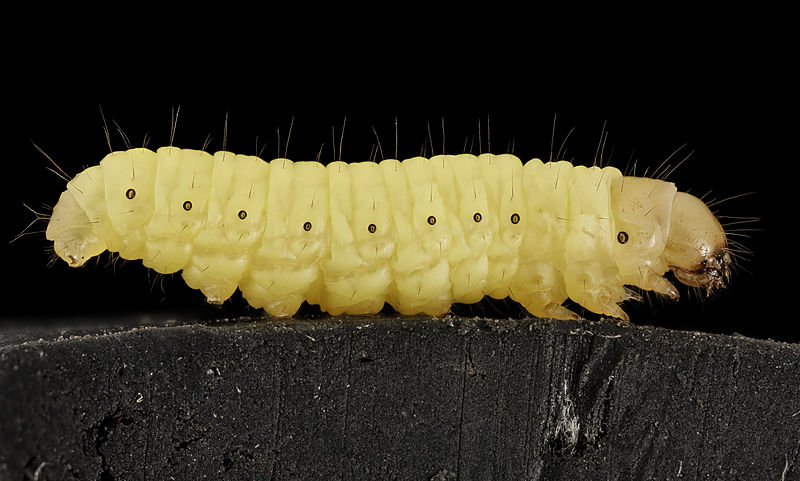
Live Waxworms (Buy Online) are a great alternative to hornworms if you’re looking for a leopard gecko treat. Waxworms have a very high-fat content that can help a young leopard gecko pack on some weight.
Waxworms are hard to find in local stores, but you can purchase them online with quick free delivery.
Crickets
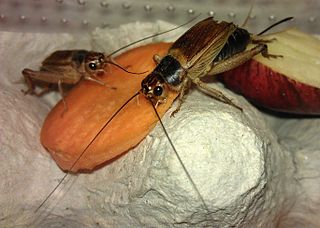
Crickets (Buy Online) are one of the most balanced sources of nutrients to add to a leopard geckos diet since they contain 20% protein and 6.8% fat. They are one of the few high protein low-fat insects that will keep your gecko well-nourished without packing on too much fat.
Butterworms
Butterworms (Buy Online) make a nice addition to the feeder insect mix a gecko regularly eats. The Chilean Trevo Moth larvae are very thick and juicy which makes them a great hornworm alternative. They have a 6% protein content, and a 5% fat content, and they are an excellent source of calcium at 43 mg/100g.
Silkworms
Live Silkworms (Buy Online) are a high calcium feeder insect, and they are a good source of B-Vitamins. Silkworms are also a low-fat high protein insect since they contain 9.3% protein and only 1.1% fat.
Tomato Hornworms
Tomato Hornworms (Buy Online) are an excellent source of calcium, and they have a very good protein to fat ratio. They have a calcium content of 46.4mg/100g, and they contain 9% protein and 3% fat. They are also very easy to raise at home, and you can order Tomato Hornworm grow kits online.
Sow Bugs – Isopods
Sow Bugs – Isopods (Buy Online) are very easy to raise, and you can feed them to adult and juvenile leopard geckos. These small bugs also reproduce very quickly, and they feed off decaying organic matter, which makes them a great addition to a bioactive leopard gecko habitat.

